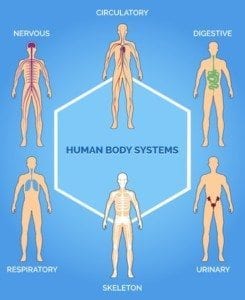The Disease List focuses on topics: What is Cushing’s Syndrome?, What is Syndrome?, Where Is The Pituitary, What is Relapsing Polychondritis and What Causes Inflammation.
ENDOCRINE DISEASES
Endocrine diseases occur with the body's endocrine system does not function properly.
The body's endocrine system comprises a network of glands that produce and release hormones.
Producing and releasing the body's hormones help control essential body functions.
Their functions include the body's ability to change calories into energy that powers cells and organs.
The endocrine system influences how the body's heart beats, how bones and tissues grow, and even the ability to make a baby.
The endocrine system plays a vital role if your body develops diabetes, growth disorders, thyroid disease, sexual dysfunction, and other hormone disorders.
DIABETES
PITUITARY GLAND DISEASES
SHEEHAN'S SYNDROME
- My Story, with Sheehan’s Syndrome
- What Is Sheehan’s Syndrome?
- What Are The Symptoms of Sheehan's Syndrome?
- Lab Tests For Sheehan’s Syndrome
- What Is The Pituitary Gland?
- Sheehan’s Syndrome Overview
CUSHING'S SYNDROME
GASTROINTESTINAL DISEASES
The body's digestive system comprises the gastrointestinal tract (GI), liver, pancreas, and gallbladder.
The gastrointestinal tract helps the body digest food.
Digestion is essential for breaking down food into nutrients, which your body uses for energy, growth, and cell repair.
Some digestive diseases and conditions are acute, lasting only briefly, while others are chronic or long-lasting.
NEUROLOGICAL DISEASES
The body's brain, spinal cord, and nerves make up the nervous system.
The nervous system enables the body to move, speak, swallow, breathe, and learn.
If the body experiences a neurological disease, it is categorized by the primary location affected.
CERVICAL DYSTONIA
CHRONIC INFLAMMATORY DEMYELINATING POLYNEUROPATHY
RHEUMATOLOGICAL DISEASES
Rheumatological diseases occur when your body has joints, tendons, or skin inflammation.
Most Rheumatological diseases happen when your immune system malfunctions and attacks its own tissues.
Medical experts are not sure why numerous rheumatological diseases occur.
Rheumatological diseases seem to affect a higher number of women than men.
FIBROMYALGIA
GOUT
INFLAMMATION
RELAPSING POLYCHONDRITIS
- What Is Relapsing Polychondritis?
- Relapsing Polychondritis Information
- Relapsing Polychondritis Symptoms
- Relapsing Polychondritis Video Shared
RARE DISEASES
In the United States, a rare disease is a condition affecting fewer than 200,000 people.
This is the definition the United States Congress created in 1983 with the Orphan Drug Act.
Other countries have their official definitions of a rare disease.
In the European Union, a rare disease is defined when it affects fewer than 1 in 2,000 people.
There may be more than 7,000 rare diseases.
The total number of Americans living with a rare disease is 25-30 million.
- Chronic Inflammatory Demyelinating Polyneuropathy
- What Is Eosinophilic Esophagitis?
- What Is Cervical Dystonia?
WHAT IS A CHRONIC ILLNESS?
You may also find the Best List of Medical Specialists helpful.
The following links may be helpful to you:
- Sheehan Syndrome Support Groups
- What Are The Symptoms of Sheehan’s Syndrome?
- HypoGal, My Story
- HypoGal’s How To References and Resources Index
Click on the following link to find Autoimmune Disease Resources.
The Autoimmune Disease Resources are from the American Autoimmune Related Diseases and the National Institutes of Health.
You may also find Patient Assisting Organization Patient Resources helpful.
HypoGal shares her health references and shortcuts to living with a chronic illness on her HypoGal Blog.
Please Like, HypoGal on FaceBook.


